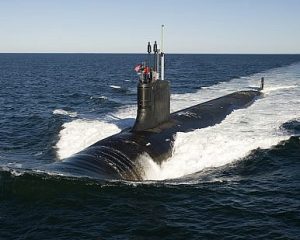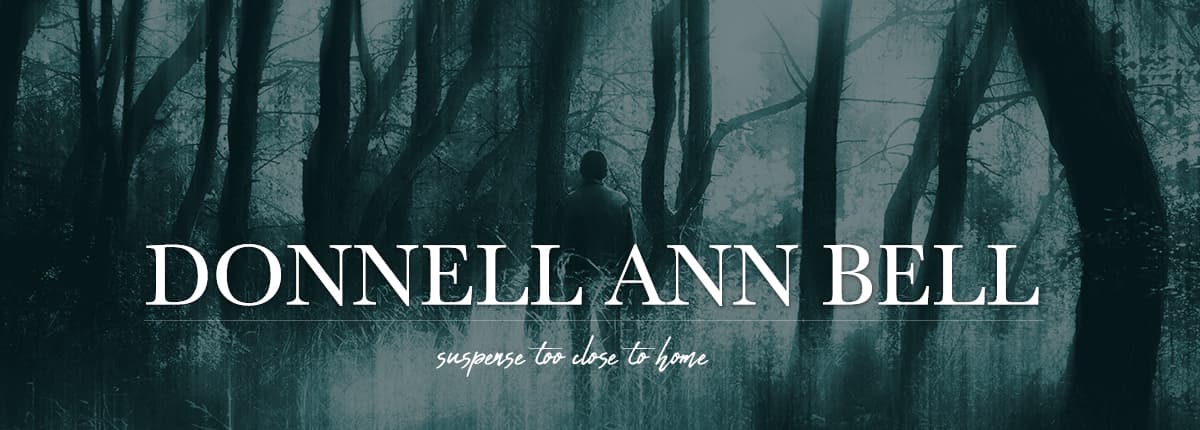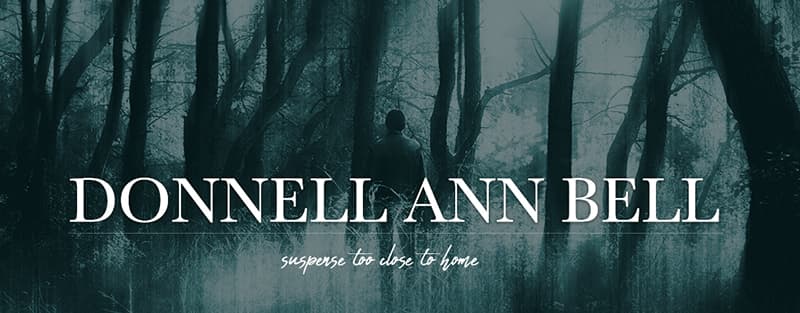 Today, I interview Prolific Author Martin Roy Hill about his latest Peter Brandt thriller, The Fourth Rising. Mr. Hill’s love of history as well as an investigative reporter background, overlaps his law enforcement and military careers. Please welcome Martin Roy Hill.
Today, I interview Prolific Author Martin Roy Hill about his latest Peter Brandt thriller, The Fourth Rising. Mr. Hill’s love of history as well as an investigative reporter background, overlaps his law enforcement and military careers. Please welcome Martin Roy Hill.
Donnell: Martin, in studying your background, you write across the board. You write thrillers, science fiction, alternate reality, noir, and nonfiction. Have I left anything out? Do you have a favorite genre?

Author Martin Roy Hill
Martin: I consider myself a thriller writer, but you need to understand the thriller genre crosses many other genres. There are mystery thrillers, sci-fi thrillers, horror thrillers, etc., and I’ve written stories in each of those, both short- and long-form. That’s not unusual. David Morrell, one of my favorite contemporary authors, is considered the father of the modern thriller and is best known for his creation of Rambo. But he’s written espionage novels, westerns, horror, and sci-fi, and he just completed a Victorian mystery trilogy. Stephen King is best known as a horror writer, but he also writes fantasy and mystery novels, too. Many authors cross genres.
When I write a story, I don’t choose what genre it’s going to be. The story chooses the genre. For instance, I am fascinated by crypto-science. Like Shakespeare’s Hamlet, I believe “there are more things in heaven and earth than dreamt of in (our) philosophy.” If something in crypto-science sparks my imagination, the story could become a horror story. My published horror short story, The Other Enemy, was inspired rumors that American troops once battled Bigfoot-like “rock apes” during the Vietnam War. Numerous documented accounts of strange, high-speed subsurface craft spotted by sonar operators of several navies inspired my military sci-fi novel Polar Melt.
I’m also a student of history, particularly military history. Not surprising, since I am a veteran of three branches of the military reserves, and a former military analyst for the U.S. Navy. I’ve written a lot of articles and a nonfiction book on military history. I also spent more than twenty years as a journalist—crime reporter, investigative reporter, and editor of a business newspaper. If a crime or something in politics sparks an idea, it will probably end up in a Peter Brandt thriller like The Fourth Rising or one of my Linus Schag, NCIS, thrillers.
Donnell: To write The Fourth Rising, you place the book in 1997. Did you choose that timeline to parallel with historical accuracy? Excluding Sci-Fi, is this typical for your other books as well, or are they more current?
Martin: Most of my novels are set in contemporary times. I set The Fourth Rising in 1997 for a couple reasons. The protagonist, Peter Brandt, first appeared in my novel Empty Places, which I originally wrote in the early Nineties. That story was set in the late Eighties. The second Peter Brandt book, The Last Refuge, was set in the early Nineties, just after the First Gulf War, Operation Desert Storm. I set The Fourth Rising in 1997 because I didn’t want to jump too far from that timeline.
Donnell: I read that you toured a nuclear submarine to write your NCIS thrillers. Talk about research. What lengths have you gone through to ensure plot authenticity?

Nuclear submarine, The Diplomat
Martin: Yes, the Navy allowed me to tour a Los Angeles-class attack sub as part of my research for my first Linus Schag novel, The Killing Depths. Basically, The Killing Depths is a murder mystery set aboard a submarine on a covert mission. In that way, it’s like an Agatha Christie mystery. Think of Murder on the Orient Express set underwater. But the plot also involves a deadly duel between submarines. I read several books on submarine warfare and tactics, asked questions of current and former submariners, and had a retired submariner read an early draft of the book to give me pointers. I also acquired a schematic of a L.A.-class sub so I could accurately have my characters move about the vessel.
As a former investigative journalist and military analyst, I’m used to doing a lot of research. To research The Fourth Rising, I consulted a dozen books, dozens of historical and scholarly articles, as well as government documents and reports. To develop the fictional League for Freedom and Responsibility, I read the position papers of several right-wing political think tanks. In the scene where Peter is reading the position statements of the League, those position points—which echo the fourteen fascist attributes—came from those real-life think-tank web sites. During the climactic scene at the end of the book, the main antagonist gives a speech that reflects much of right-wing rhetoric heard today. But I didn’t make up that speech. It is an Americanized translation of a speech Hitler gave to members of his SS.
Donnell: In Fourth Rising, you take on the frightening topics of fascism, World Wars, and, Hitler’s reign. Your protagonist is an investigative journalist. How would you say the author is different than his protagonist Peter Brandt?
Martin: Many writers I know put a little of themselves into their favorite characters and, for me, that’s Peter Brandt. Like Peter, I started my journalism career as a crime reporter for a daily newspaper in Palm Springs and later became a national awarding-winning investigative journalist. Also, like Peter, between my journalism and military careers, I have a lot of ghosts that haunt me still. Many of Peter’s ghosts described in the novels are my ghosts. Again, like Peter, I have had to make peace not only with those ghosts but also with my own faults. And we both like to drink Scotch.
Donnell: I found it astounding to think there could possibly be a Nazi training ground, particularly in California. Yet when I researched it, found in the 1930s there was indeed a camp known as Murphy’s Camp, now owned by the city of Los Angeles. Was this part of the inspiration behind Fourth Rising?
Martin: You’re referring to Murphy Ranch, which was a training camp for the fascist Silver Shirts. And, yes, that was part of the inspiration for the training camp in The Fourth Rising called the Alpine Redoubt. The Silver Shirts were just one of several fascist and pro-Nazi groups operating in the U.S. in the Thirties and early Forties. The German-American Bund was essentially a Nazi Party affiliate. They held rallies and parades, and grew large enough to hold a convention at Madison Square Garden in New York. The description of the Alpine Redoubt in my novel was based on the Bund’s 100-acre training center in New Jersey called Camp Nordland. The Atlantic Magazine published an in-depth article on the Bund with photos I used to describe the Alpine Redoubt in my novel. (https://www.theatlantic.com/photo/2017/06/american-nazis-in-the-1930sthe-german-american-bund/529185/)
But not all the pro-fascist groups of the time were swastika-bearing, jack-booted thugs. The DAWA was a large anti-Semitic business group that worked to close businesses owned by Jews. The Fascist League of North America was a pro-Mussolini group. Then there was Father Coughlin, probably the first to use the broadcast media to spew hatred and bigotry throughout the country.
 I had written about these groups in a couple of published alternate history short stories that describe a defeated America occupied by the German army and SS. But the inspiration for The Fourth Rising was the work of several contemporary researchers who, like the novel’s fictional Jonathan Glasgow, believe the Nazi Party survived the German surrender in 1945 and continued its plan for world domination through means other than war. It’s not really a new plot idea, I admit. Frederick Forsyth wrote about it in The Odessa File, and Ira Levin did the same in The Boys from Brazil. It’s also the premise for the Amazon Prime series Hunters. But a reviewer from Publisher’s Weekly said, “Hill injects suspense and plausibility into a familiar plot—the existence of a covert movement aimed at restoring the Nazi Reich.”
I had written about these groups in a couple of published alternate history short stories that describe a defeated America occupied by the German army and SS. But the inspiration for The Fourth Rising was the work of several contemporary researchers who, like the novel’s fictional Jonathan Glasgow, believe the Nazi Party survived the German surrender in 1945 and continued its plan for world domination through means other than war. It’s not really a new plot idea, I admit. Frederick Forsyth wrote about it in The Odessa File, and Ira Levin did the same in The Boys from Brazil. It’s also the premise for the Amazon Prime series Hunters. But a reviewer from Publisher’s Weekly said, “Hill injects suspense and plausibility into a familiar plot—the existence of a covert movement aimed at restoring the Nazi Reich.”
Donnell:You have won awards for your journalism and for your writing. Your first story was published when you entered the Coast Guard. I have read two of your books now. (In addition to The Fourth Rising, I am the proud owner of Polar Melt). Why Indy publishing?
Martin: That’s a long story. During the Nineties I was pursuing the traditional publishing route. I acquire an agent for Empty Places, but after nearly a year of no word from her, I contacted her. She said she had been working so hard on her own novel she hadn’t had time to sell mine. I dropped her and signed with another agency. About six months later, I received a letter from them announcing they were going out of business. Then the 9/11 attacks happened and I did a stint of active duty with the Coast Guard as part of Operation Nobel Eagle. About that time, I realized I was tired of journalism and sought a career change. I was hired as a Navy analyst in combat casualty care just a few months before we invaded Iraq. Once the invasion started, our op tempo was so high I didn’t have the time to write for nearly a decade.
When the Iraq war start to wind down, I started writing again. I stumbled across something on the web about independent publishing. By then I was in my late fifties and I didn’t feel I had enough time left to go around in circles again with lit agents and publishers. My wife, Winke, literally grew up in publishing; her birth father was a successful mystery novelist and her step-father, who raised her, was a magazine publisher. With our backgrounds I figured why not give indie publishing a try? I put together a collection of previously published short stories dealing with national service called DUTY. It got good reviews and won an award. So, I never looked back.
Since I made that decision, independent publishing has become far more accepted. For instance, I was one of the first indie authors granted full, professional membership in the International Thriller Writers group. Prior to that, indies couldn’t hold full membership. I believe the reason it’s more accepted today is because of the shrinking number of traditional publishers. In the Eighties, there was something like thirty big name publishing houses. Today there are only five, and that may soon become four. That means there are fewer chances for new writers to get published. Publishing houses are also dropping many of their long-time mid-list authors. Those writers are turning to independent publishing to maintain their readership and royalties. However, Donnell, if you want to introduce me to your agent…
Donnell: You have been unbelievably generous and helpful in teaching writing workshops for national writing organizations. You also answer questions on a writers loop I co-own with retired veteran police officer Wally Lind, Crimescenewriter. I understand you work with authors professionally. Will you tell us about that?
Martin: I like to help other writers and I have a rather eclectic background and experience. The first sentence in my bio on my web site reads: “Martin Roy Hill has led an eclectic life. Soldier, sailor, journalist . . . well, not a spy, but he has written about them.”
Besides my experience as a medic and my work with the Navy, I also trained combat medics for Iraq and Afghanistan when I was an officer in a component of the California National Guard. I’ve used that knowledge to lectured on how to write about violence authentically and responsibly to the local chapter of Sisters in Crime as well as at the Southern California Writers Conference. I’ve used my own learning experience as an indie author to lecture on the business side of independent publishing, and used my experience as a freelance writer and editor to teach a class on freelancing in today’s gig economy for a group called San Diego Writers Ink.
Funding for my Navy contract ended in 2018, so I retired and started a freelance editing business, M. R. Hill Publishing. I work with both publishing houses and individual authors. One of the services I offer is consulting with authors on writing about the military.
Donnell: Time to put you on the spot here. Do you have a favorite protagonist in your many series?
Martin: Well, as I’ve already said, there is a lot of me in Peter Brandt. His voice is my voice. His cynicism is my cynicism. And it’s fun to write in the first person and make wry comments about the world around us.
Donnell: Thank you for being my guest and introducing me to the Peter Brandt series. What comes next for you in your writing career? Where can readers find you?
Martin: Audiobooks are hot now, and four of my novels are now available in that format. Two more are in production, including The Fourth Rising. And I’m currently looking at selling the film rights. The advent of streaming TV movies like Netflix and Amazon Prime, producers are looking for new stories that can be made into film.
As far as writing, I’m working on a sequel to Polar Melt. This time, the Coast Guard members of DSF-Papa find themselves investigating a mysterious island around which many ships, boats, and aircraft have disappeared amid rumors of “high strangeness.” I also have been working on a new Linus Schag novel, but it’s a rather dark wartime plot with a sort of Heart of Darkness edge. It’s a difficult book to write while we’ve been going through this terrible pandemic, so I switched to the Polar Melt sequel. Writing sci-fi is so much more fun! Readers can find me online at www.martinroyhill.com as well as on Facebook and Twitter.
About Fourth Rising: 1943: A German ship moors in a clandestine anchorage in western Mexico with a cargo of gold intended to bribe the Mexican government into declaring war on the United States. When the attempt fails, the German vessel flees leaving its gold buried somewhere along the coast of the Sea of Cortés.
in western Mexico with a cargo of gold intended to bribe the Mexican government into declaring war on the United States. When the attempt fails, the German vessel flees leaving its gold buried somewhere along the coast of the Sea of Cortés.
1997: The horrific murder of an old flame’s husband sets former war correspondent Peter Brandt on the hunt for the hidden Nazi treasure. The search takes him down a bloody trail leading from the drug cartels of Mexico to a neo-Nazi training camp in the Southern California mountains. Along the way, he unearths a decades-long Nazi conspiracy to create a new Fourth Reich and continue the Nazi Party’s plan for world domination.
Inspired by true historical events, and recent research suggesting the Nazi Party survived the German surrender, The Fourth Rising is the latest in the Peter Brandt adventures which include Empty Places and The Last Refuge.
Available in print and e-book from Amazon.
Bio: Martin Roy Hill is the author of the Linus Schag, NCIS, thrillers, the Peter Brandt thrillers, DUTY: Suspense and Mystery Stories from the Cold War and Beyond, EDEN: A Sci-Fi Novella, Polar Melt: A Novel, and WAR STORIES: Tales of Courage, Leadership, Blunders, and SNAFUs. His latest Linus Schag thriller, The Butcher’s Bill, received the Best Mystery/Suspense Novel of 2017 from the Best Independent Book Awards, the Clue Award for Best Suspense Thriller from the Chanticleer International Book Awards, the Silver Medal for Thrillers from the Readers Favorite Book Awards, and the award for Adult Fiction from the California Author Project.











Fascinating interview! I loved hearing all the details. You certainly have the background to write thrillers, and you use it well.
An amazing interview. Thanks Martin and Donnell. What a background, Martin. Thanks for taking the time to give such thorough answers.
Love this interview! Thanks, Martin, for your insight into the American Bund. Truly fascinating. I’ve done a bit of research about their rallies. Not a pretty picture of our own history during WWII.
Thank you, everyone. I appreciate your comments. If I can be of help at any time, please feel free to contact me.